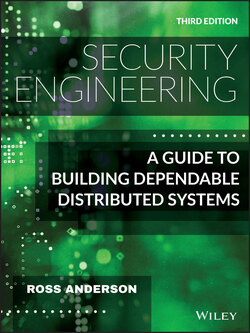Читать книгу Security Engineering - Ross Anderson - Страница 78
3.2.5.2 Present bias and hyperbolic discounting
ОглавлениеSaint Augustine famously prayed ‘Lord, make me chaste, but not yet.’ We find a similar sentiment with applying security updates, where people may pay more attention to the costs as they're immediate and determinate in time, storage and bandwidth, than the unpredictable future benefits. This present bias causes many people to decline updates, which was the major source of technical vulnerability online for many years. One way software companies pushed back was by allowing people to delay updates: Windows has ‘restart / pick a time / snooze’. Reminders cut the ignore rate from about 90% to about 34%, and may ultimately double overall compliance [726]. A better design is to make updates so painless that they can be made mandatory, or nearly so; this is the approach now followed by some web browsers, and by cloud-based services generally.
Hyperbolic discounting is a model used by decision scientists to quantify present bias. Intuitive reasoning may lead people to use utility functions that discount the future so deeply that immediate gratification seems to be the best course of action, even when it isn't. Such models have been applied to try to explain the privacy paradox – why people say in surveys that they care about privacy but act otherwise online. I discuss this in more detail in section 8.67: other factors, such as uncertainty about the risks and about the efficacy of privacy measures, play a part too. Taken together, the immediate and determinate positive utility of getting free stuff outweighs the random future costs of disclosing too much personal information, or disclosing it to dubious websites.
